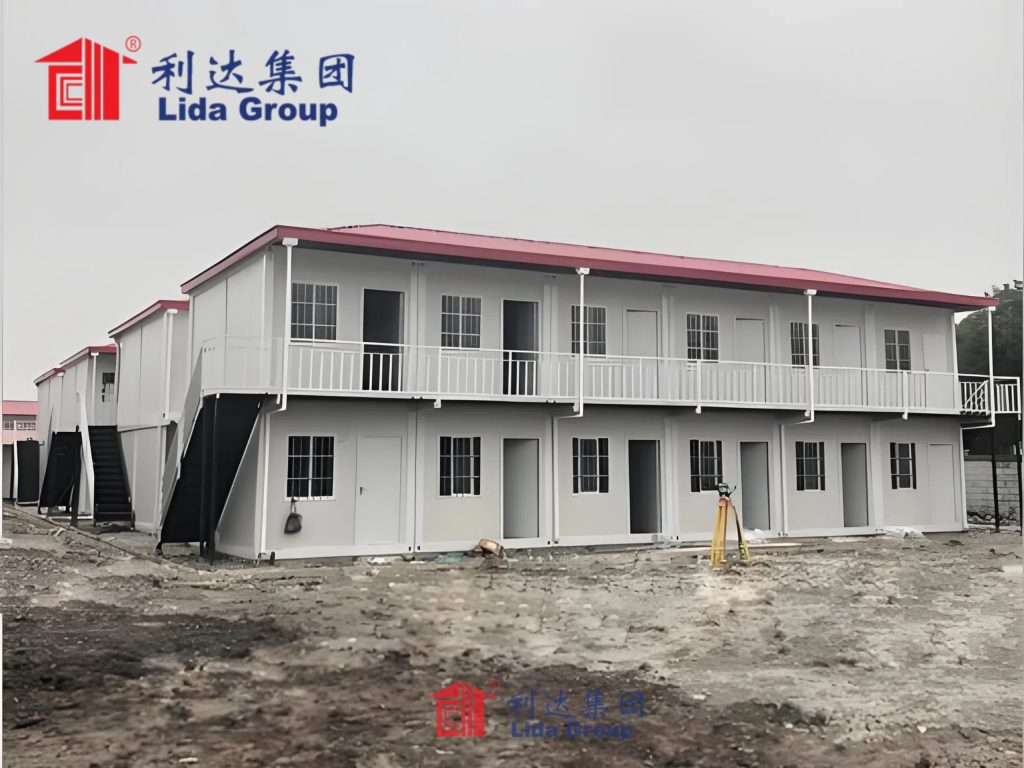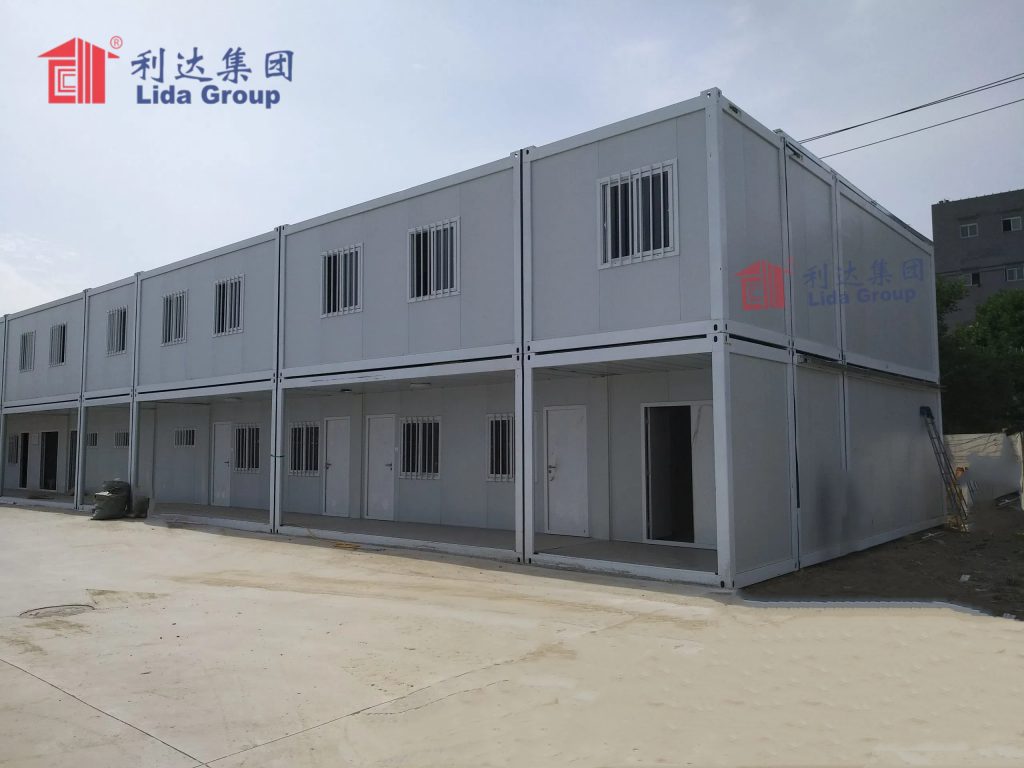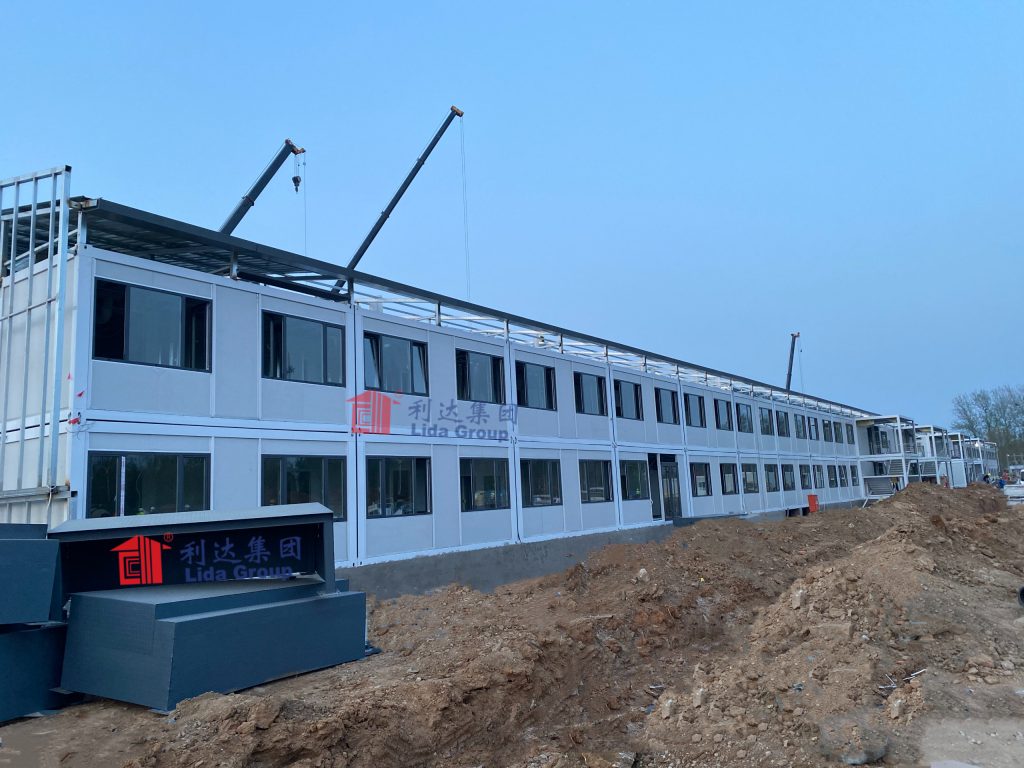As global displacement crises worsen with armed conflicts, natural disasters and climate change impacts, the urgent need for durable yet rapidly deployable housing intensifies. Currently over 80 million people worldwide reside in impromptu tent camps lacking secure shelter, sanitation or long-term opportunities. The UN Refugee Agency shoulders immense responsibility resettling those uprooted while advocating sustainable solutions. Recognizing prefabrication’s potential, UNHCR collaborated with leading manufacturer Lida Group to test flat-packed panelized container homes for the first time at scale.
The UN High Commissioner for Refugees directs international response to displacement emergencies across borders. Core mandates include coordinating host nation support, basic relief aid distribution, and seeking durable solutions like repatriation or local integration. However, traditional tent camps fail to transition refugees from interim to permanent settlement while risks abound lacking running water, secure structures or community spaces. As crises exponentially increase worldwide, exploring safer permanent housing models became imperative to meet mass need.
Enter Lida Group – world innovators in scalable modular/panelized building optimized for off-site fabrication anywhere. Their container home systems utilize standardized components shipped flat-packed for swift assembly without construction expertise. Steel superstructures interlock durable wall/roof panels through simple hand tools within hours. Modularity enables rapid staged expansion matched with growing population stability. Integrated plumbing, wiring and renewable energy minimize long-term resource dependence. Most importantly, a life-cycle designed for disassembly/reuse supports mobility as situations evolve.

UNHCR conducted multi-phase field tests of Lida container village prototypes across regions to validate designs under varied climates/geographies. Workshops engaged refugee leaders ensuring culturally appropriate layouts and self-governance considerations. Initial builds deployed within Bangladeshi Rohingya camps now exceeding 600,000 displaced amidst monsoon season. Within days, 500 multi-family homes materialized where tents flooded regularly. Self-contained sanitation facilities and centralized solar microgrids established basic autonomy previously unavailable.
Robust construction proven in the Philippines withstood category 5 Typhoon Vamco without damage while nearby tent camps evacuated. In Tunisia’s arid desert, self-contained water systems, efficient insulation and solar powered community centers empowered stability for Libyan refugees amid scarce resources. Meanwhile Nigerian IDP communities commented improved resilience combating extremism through secure housing addressing root causes driving radicalization within refugee crises left to fester abroad without durable solutions.
Across three years of UNHCR trials, Lida villages have safely housed over 15,000 refugee families previously residing dangerously in floodplains and flimsy tent cities. Independent panels replaced central tent structures minimizing fire/collapse risks. Modular expansions now accommodate growing populations as conflicts stabilize. Importantly, diverse field tests validated designs worldwide under climatic stresses traditional tents fail, proving container constructions far more cyclone/earthquake resistant through engineering.

Perhaps most notably, communities testified improved mental wellness from secure stable shelter reassuring uprooted families trauma shall not twice displace them. Youth literacy programs activated within climate-controlled schools where learning previously halted during rains/heat. Crucially, dignified self-sufficient housing allowed many pursue independent livelihoods through community gardens and small enterprise zones reinvigorating hope amid displacement crises too often trapping populations in limbo for generations.
As the UN looks towards sustainable development goals, Lida villages seeded humanitarian-development nexus models empowering displaced communities toward long-term resilience and self-reliance seldom attainable within tent camps. Modular infrastructure scaled aid response fourfold through expedited containerized settlements constructed locally without heavy lifting equipment. Communities mobilized their spaces through cultural expressions and shared governance ownership over designs impacting millions worldwide.
This historic partnership conclusively validated flat-packed prefabricated construction as the optimal durable housing type for interim stabilization and long-term permanency supporting refugees worldwide. Scalable modular designs optimized delivery, assembly, expansion, and future mobility demands better than static tent camps or abandoned structures unable to evolve alongside communities. With over 80 million displaced globally amid escalating crises, mass modular resettlement infrastructure has emerged critical to humanitarian missions of tomorrow.

In conclusion, through extensive multi-region field tests UNHCR endorsed Lida Group’s flat-packed prefabricated container villages as the superior housing solution meeting core mandates of rapid intervention, stable shelter, and durable independent community development supporting global displaced populations. Cost-effective modular techniques expedited settlements fourfold for mass need compared to traditional tent camps. Importantly, permanent structures empowered independent livelihoods, education, and overall dignity/wellness improving humanitarian outcomes unmatched by interim or improvised accommodations. Scalable permanent infrastructure is imperative to meet the unprecedented scale of global displacement crises amid 21st-century realities.

Related news
-
Engineers devise new rail-mounted assembly method for Lida Group's prefab container classrooms to facilitate rapid production and installation on tight urban sites.
2024-09-18 14:30:33
-
Philanthropists donate versatile Lida Group designed structural steel buildings housing classrooms and clinics serving impoverished areas affected by natural disasters.
2024-09-13 13:37:49
-
Developing nation imports prefab shelter kits from Lida Group incorporating flat-packed insulation panels for quick setup of cyclone evacuation centers.
2024-09-18 09:12:55
contact us
- Tel: +86-532-88966982
- Whatsapp: +86-13793209022
- E-mail: sales@lidajituan.com


